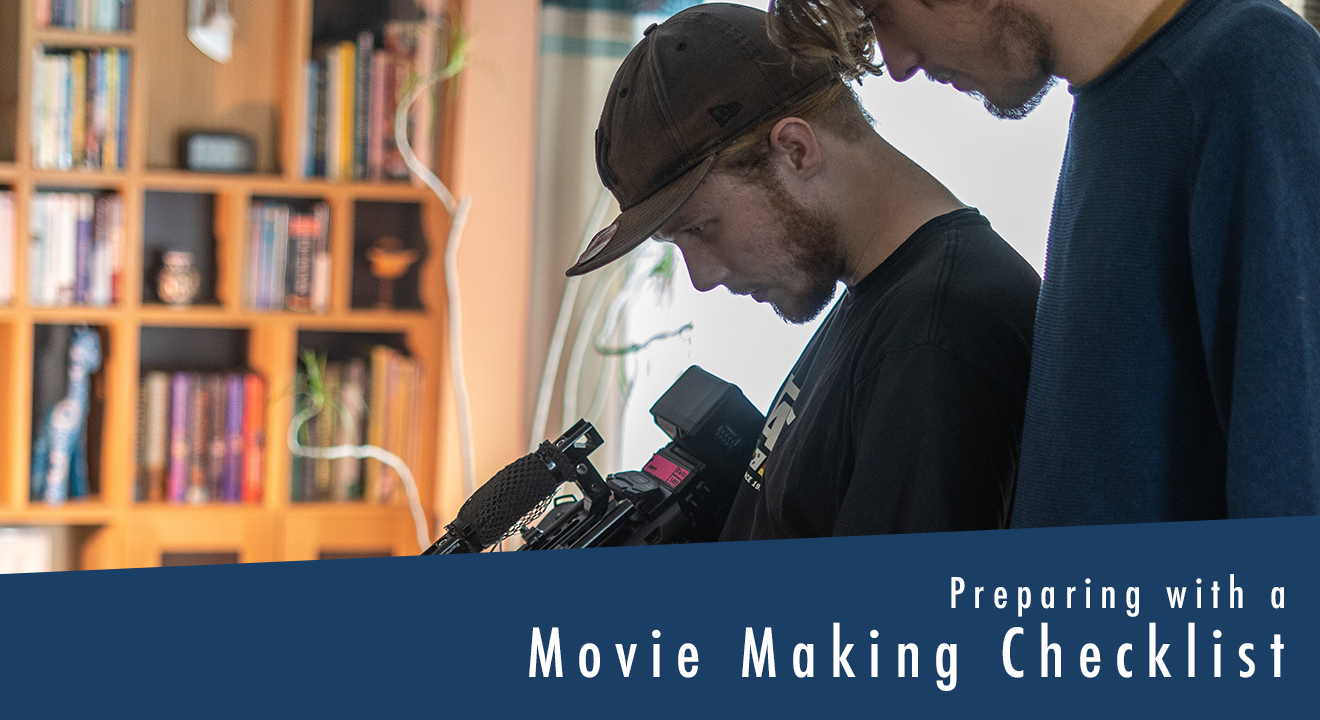Your Movie Making Checklist
In this article we will offer a basic Movie Making Checklist to help you get your micro-budget movie project off the ground.
An Industry in Crisis. A need for Change.
Let’s face it; Hollywood is a mess right now. How and when the industry will move forward with the ongoing labor disputes and disruptions within film distribution is totally unclear. However, there is one huge silver lining, especially if you are an indie filmmaker. While the industry bemoans its unsustainable business models and horribly inefficient filmmaking systems, you have a real shot at pulling ahead.
Nonetheless, planning and executing an indie movie project (or any film project, for that matter) can be an exhilarating experience, but it requires meticulous preparation to ensure a successful outcome. To help you stay organized and focused, the team at Indie Film Factory has compiled a comprehensive movie-making checklist covering all the essential aspects of preparing for your indie movie project in these opportunistic times.
Let’s get started!
Story and Script Development
Your movie’s foundation lies in its story and script. Brainstorm, outline, and develop a compelling narrative that captivates your audience. Once you have your screenplay, share it with trusted individuals for feedback and improvements. Remember, a well-structured story will set the tone for the entire project. Also, as a side note, avoid using AI to help you write your scripts. Robots are horrible screenwriters and are filled with cliches and plagiarism.
Movie Making Budgeting and Fundraising
Create a detailed budget encompassing all production aspects, from equipment and cast salaries to locations and post-production costs. Research potential funding sources such as grants, crowdfunding platforms, and private investors. Stay organized and keep track of all financial transactions throughout the project. Another thing to keep tabs on is the budget. If you are filming a micro-budget movie, try making your film for under $50,000. Pay yourself last and keep your location, cast, and crew count to a minimum.
Assembling the Crew
Collaborating with a skilled and enthusiastic crew is vital to your movie’s success. Seek professionals who share your vision and dedication. Your team should include a director of photography, sound designer, production manager, costume designer, and more, depending on the project’s scale. You also want to ensure you are transparent about the financial realities of your project. Do not over-promise, and pay your team a rate proportional to the film you are making.
Casting the Right Talent
Although SAG-AFTRA is on strike, this doesn’t mean you can’t make your movie. There are thousands of non-union performers looking to build their portfolios. Regardless, conduct auditions and cast actors who fit their roles perfectly. Your characters’ portrayal greatly influences the audience’s emotional connection with the story. Take your time during casting, and remember that the right talent can elevate your movie to new heights. Also, factor in day rates and other essential costs in securing your talent.
Securing Locations and Permits
Scout and secure suitable filming locations well in advance. Obtain all necessary permits and permissions to avoid last-minute disruptions. A well-chosen location can add depth and authenticity to your scenes. Avoid “company movies” and maximize your schedule’s efficiency by consolidating your filming locations.
Equipment and Technology
Invest in quality camera equipment, lighting, and sound gear. If you can’t afford to rent or buy equipment, hire a crew that comes with equipment package deals. Ensure you have backup equipment readily available to handle any unexpected technical issues during the shoot. Test all equipment beforehand to avoid any on-set surprises.
Pre-Production Rehearsals
We always say movies are made in pre-production. Conduct pre-production rehearsals with your cast and crew to fine-tune performances, choreography, and camera movements. Rehearsals are an excellent opportunity to establish a solid working dynamic and build rapport among the team.
Scheduling and Time Management Check List
Create a detailed shooting schedule that optimizes time and resources. Staying on track is crucial, especially for indie projects with limited budgets. Efficient time management will help you make the most of your shooting days.
Health and Safety Measures
Prioritize the well-being of your cast and crew by implementing strict health and safety protocols. Ensure everyone adheres to guidelines related to COVID-19 or any other potential risks during production.
Post-Production Planning
While shooting is essential, the magic happens in post-production. Plan the editing process, sound design, visual effects, and color grading beforehand. Allocate sufficient time and resources to achieve the desired final product.
Remember, every indie movie project is unique, and flexibility is critical. Adapt your movie making checklist to suit your specific requirements and vision. Stay open to collaboration and be prepared to embrace unforeseen opportunities that arise during production.
By following this checklist and incorporating your creative flair, you’ll be well on your way to bringing your indie movie project to life!
Are you ready to embark on your indie movie-making journey? Contact us for consultations. Our movie making team will guide you through every step of the process, from script development to post-production planning.
Also, check out some of our recent books on filmmaking!
-Kelly, Indie Film Factory, LLC



